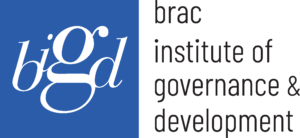Bangladesh’s national elections in 2018 resulted in a dominant party state with greater concentration of power, less room for political alternatives and shrinking of civic space. It is “graduating” to a middle-income country with increased per capita income, reduced poverty and social progress in some areas, although this is accompanied by rising inequality. COVID-19’s impact on livelihoods and poverty puts at risk the progress made.
In Bangladesh, women’s economic empowerment has been promoted without addressing deep-rooted discrimination. Political Islam has become a visible force in the absence of viable political opposition and is a threat for the freedoms and rights of women and other interest groups. Freedom of expression of the press and civil society to present alternative views, critiques or even proposals is constrained by measures such as the Digital Security Act (DSA) 2018. Freedom of association is restricted, affecting the scope of protest or movements, and citizens are prioritising livelihood security over democracy and human rights. Additionally, while the expansion of digital media outreach has both increased the opportunity for education and work, it has also created scope for online gender-based violence and backlash against gender rights activism.
